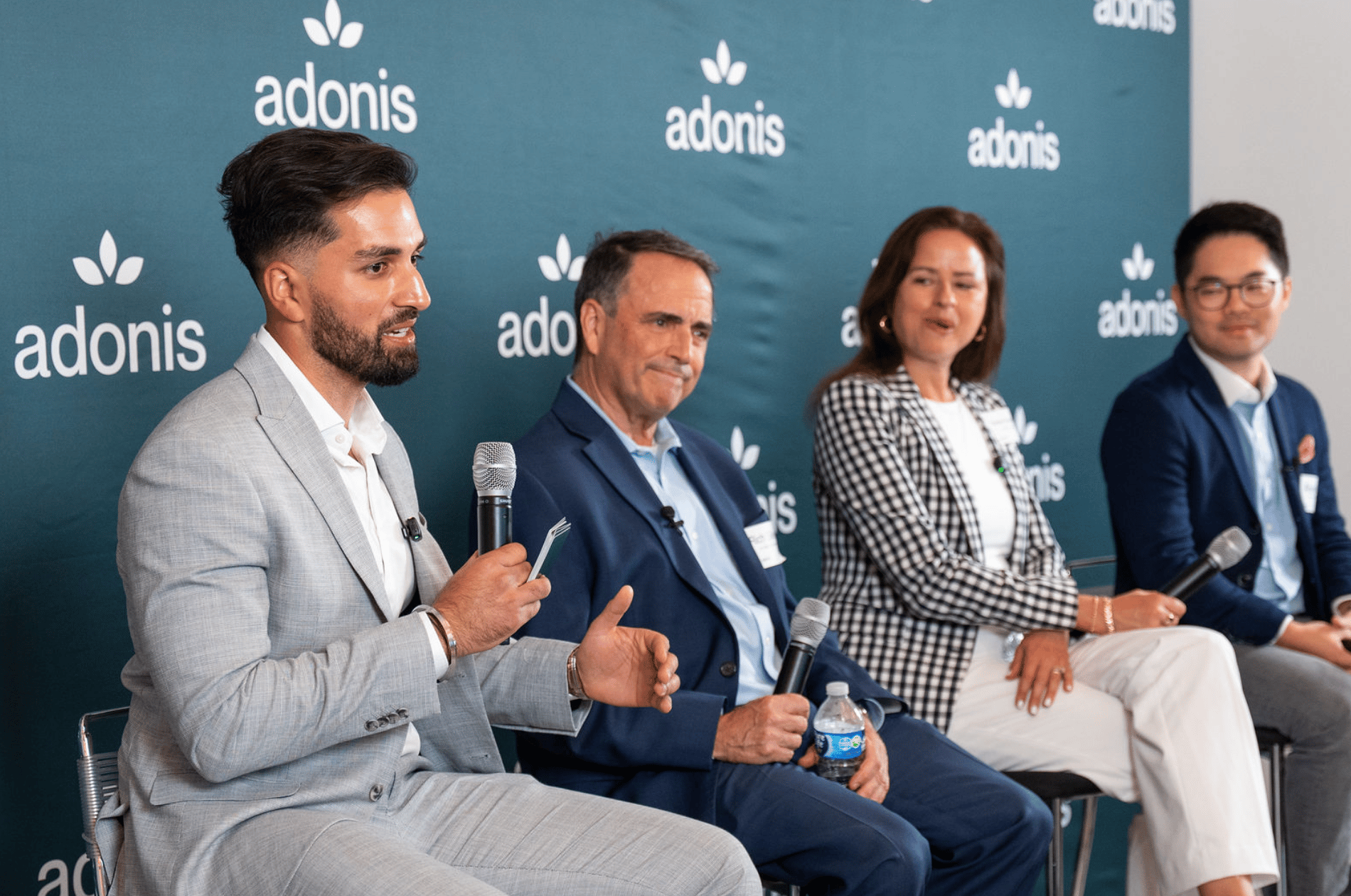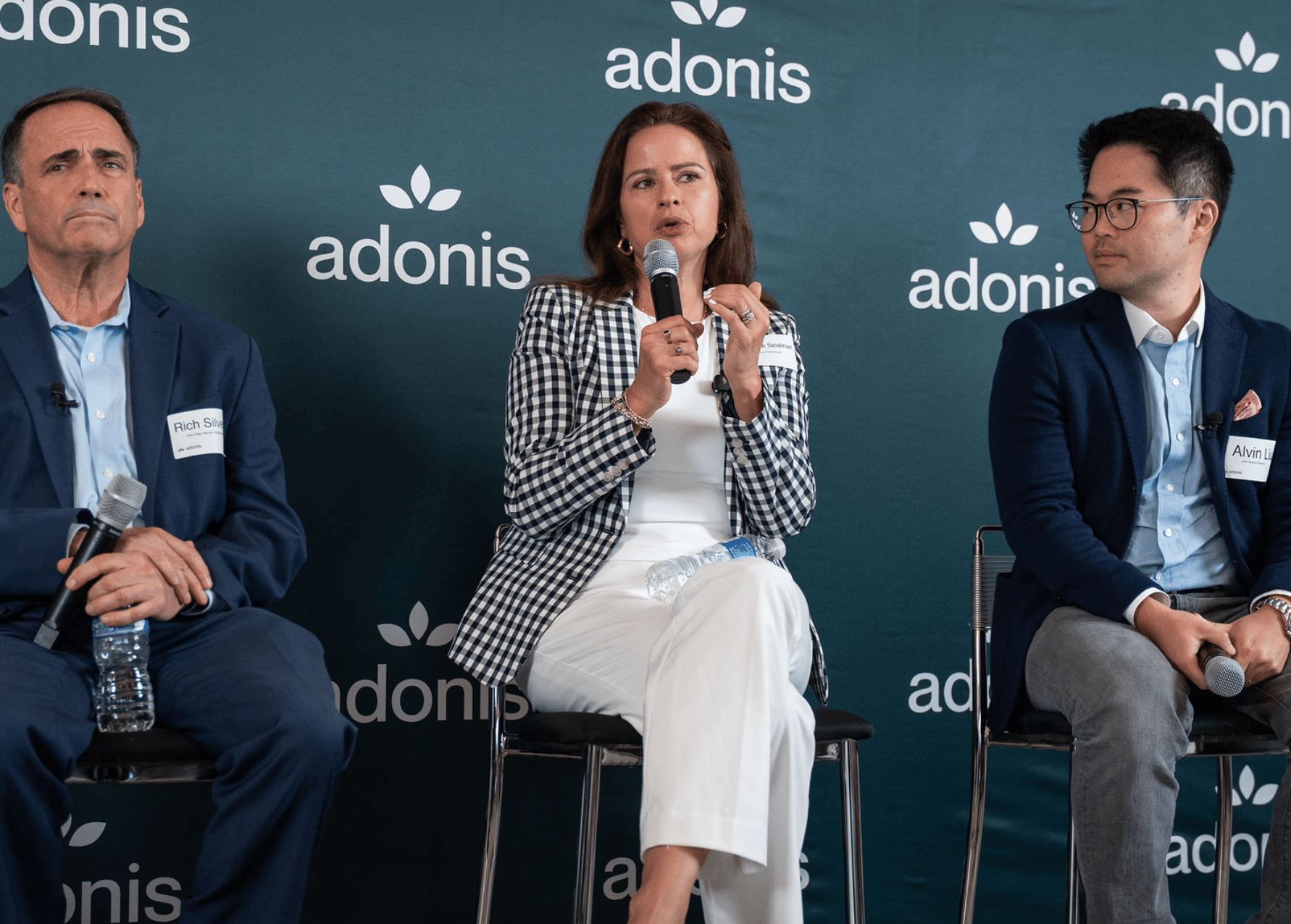- Building in Healthcare by Akash Magoon
- Posts
- How AI Is Reshaping the Healthcare Workforce
How AI Is Reshaping the Healthcare Workforce

Last month, Adonis hosted the Revenue Innovation Summit at our Manhattan headquarters, where we engaged leading health systems on AI innovation in revenue cycle management.

Richard Silveria, Chief Financial Officer at Ohio State University’s Wexner Medical Center, reflected on the critical moment that RCM finds itself in: “All the signs say that we cannot afford the current economic structure of healthcare. We have to optimize our liquidity and get paid for the clinical mission. If there’s relentless pressure on the system, you have to think: how am I going to get more efficient?”
It’s a sentiment shared by many people I spoke with at the Summit, and the mission that drives our work at Adonis every day: how do we leverage AI to transform the problems that have riddled RCM for too long?
RCM has always been the financial backbone of any health system. But here’s the challenge: too often it’s weighed down by inefficiencies, costly mistakes, and manual processes that eat up time and resources.
That’s where AI comes in.
From managing claim denials, to streamlining patient care, to ensuring health systems are getting paid for the large amount of low dollar claims that often slip through the cracks, Adonis has seen first-hand how RCM teams are augmented, rather than replaced, by the use of agentic AI.
Below, I share three key areas in which AI is successfully reshaping the RCM workforce.
Claim Denial Management
For most RCM teams I talk to, they are under constant pressure: process claims faster, minimize denials, and somehow cut costs at the same time. But RCM workflows are still bogged down by manual work, which means more denials, reimbursement delays, the pile-up of claims, and lost revenue. It’s the norm, but it’s hurting our nation’s health systems and physician practices.
At the Revenue Innovation Summit, Richard Silveria highlighted the necessity of improving claim denial management, using the example of Ohio State Wexner Medical Center’s $7 billion revenue: “A ‘good’ range of denials is two to four percent of your revenue. Two to four percent of 7 billion…that’s a few bucks! How can I liquidate my receivable at the highest percent possible?”
This is exactly where AI agents can help.
Instead of just automating the tasks done manually by an RCM team, they combine intelligence, contextual learning, and payer-specific insights to actually improve the process. This means faster resolutions, fewer errors, and real ROI, without piling more work or hidden costs onto the team.
Adonis works with a leading US emergency medicine provider who struggled with Veteran Affairs (VA) claims that ate up their time, increased costs, and produced errors that drained both their team and revenue.
So, we put Adonis AI Agents to work. Instead of overhauling the provider’s system, they plugged right into existing workflows, automating outreach to the VA and layering in contextual intelligence. The agents started capturing critical data, tracking payer behavior, and streamlining communication in ways the team had never seen before.
The results speak for themselves:
50% reduction in denial rates: smarter, targeted processing meant fewer claims falling through the cracks and increased revenue.
95% success rate in AI-driven payer phone calls: the right data got captured and communication became smoother and more effective.
More efficient workflows: the system orchestrated tools and insights so staff could spend less time chasing payments and more time focused on care.
Adonis AI Agents didn’t just automate, they solved problems at the root, transforming RCM from a drain into a driver of financial health.
Low-Dollar, High-Volume Claims
A claims backlog often starts small, a handful of unpaid or denied claims set aside for “later.” But in RCM, “later” often turns into “never.”
Billing teams are under pressure to hit collection goals, so they’ll chase the high-dollar claims first. A $10,000 claim is always going to win out over a $50 one, especially when the average RCM team deals with what Richard Silveria calls a “dumpster truck of claims every day.”
The problem is, those smaller claims don’t disappear. They pile up. And because traditional RCM is so manual, each claim, big or small, takes roughly the same amount of effort. So naturally, the low-value ones get pushed aside, turning into a mountain of unpaid claims over time.
The cost of this is hundreds of thousands of dollars in lost revenue that could have been recovered but instead gets written off as bad debt.
For me, this is where AI Agents really shine in RCM. They’re built to take on the tasks that bog billing teams down, those endless low-dollar, high-volume claims that are just too time-consuming to tackle manually.
Instead of making tradeoffs, AI agents can work through thousands of small claims on their own. They log into payer portals, check statuses, flag denials, and even take corrective steps based on rules you’ve already defined. This means RCM isn’t stuck chasing $50 claims, they can focus their expertise on the complex, high-value cases that actually need human judgment and negotiation.
Also, they work 24/7, steadily reducing backlog, shrinking days in A/R, and boosting cash flow. while recovering revenue that would otherwise be written off.
Alvin Liu, Co-Chair of the AI and Data Trust Council at Johns Hopkins Medicine and a Revenue Innovation Summit panelist said: “There’s so much to do in RCM that by augmenting the existing workforce, you’re simply catching up. So with the application of generative AI in RCM, it’s not hard to show the impact it has on revenue generation. It’s low-hanging fruit.”

Clinical Care
The transformation of RCM through AI Agents impacts clinical processes, too.
For patients, AI Agents are a game-changer for time-consuming, error-prone steps like benefits verification and prior authorization. Instead of staff making endless phone calls or digging through payer portals, an AI Agent can confirm a patient’s eligibility in real time before they step into the doctor’s office. This reduces claim denials and proactively informs a patient of their financial responsibility.
Summit panelist Sharlene Seidman, VP of Revenue Cycle Management at Yale New Haven Health, pointed out: “The more often you’re talking to a patient and communicating what they will be paying for services up front, the more likely they are to pay it.”

AI Agents can also help manage staff and patient schedules, support doctors with predictive analytics, and even play a role in diagnostics and ongoing patient monitoring.
Providers gain bandwidth, patients get better care, and everyone benefits from having what feels like extra hands on the team. I’ve seen the relief it brings to clinical staff and the reassurance it offers patients, and that’s the kind of transformation healthcare desperately needs.
The Future Of RCM
At the conclusion of the Revenue Innovation Summit, Alvin Liu said: “If I had to pick the most important application for generative AI in medicine over the next three years, it would be RCM. In ten years, I imagine a world in which RCM is AI-centric, where RCM is run by a bunch of AI agents, and you have humans in the loop to coordinate what things look like on a macro level.”
For health systems that lean in, I imagine AI agents will quickly go from a “nice-to-have” to becoming essential for RCM teams around the country. The payoff is clear: stronger revenue, less administrative drag, and, most importantly, more time and energy to focus on delivering the quality healthcare that patients deserve.
Thanks for taking the time to read! Check out the recording of the full panel event here:
Best,
Akash Magoon
Co-Founder and CEO
Adonis